Human Rights and Labor Practices
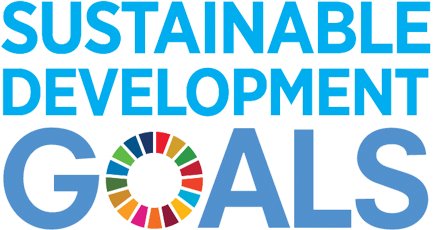

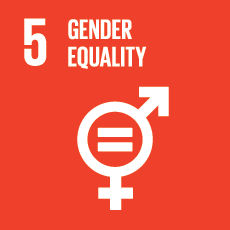
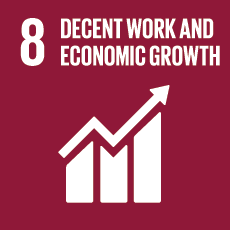

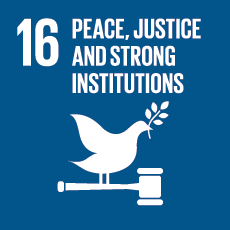
Key Performance in 2024
CPRAM received the award as a model organization for human rights in 2024, at an outstanding level, in the category of large-sized businesses for the fourth consecutive year from the Rights and Liberties Protection Department, Ministry of Justicea
of FTE in the Company’s operations and business activities have been assessed for human rights risks and impacts
of FTE in high-risk operational areas have risk management measures in place
of new employees have completed the “Basic Training for New Employees” course
of new store partners and new business partners have been educated and assessed for human rights impacts
of current employees at all levels have been educated and passed the knowledge assessment for the “Human Rights and Business” course
of target areas as per the plan have been certified with the international standard for occupational health and safety management, ISO 45001: 2018
Key Progress in 2024

CPRAM participated in the 2024 human rights model organization assessment

Conducted a review of human rights risks (Human Rights Risk Assessment) through the comprehensive human rights due diligence process (Human Rights Due Diligence Process: HRDD)

Developed, reviewed, and monitored preventive, mitigating, and remedial measures for risks that need to be managed first

Organized activities to promote DEI (Diversity, Equity, Inclusion) through the ALL PRIDE 2024 campaign to support diversity, equity, and inclusion
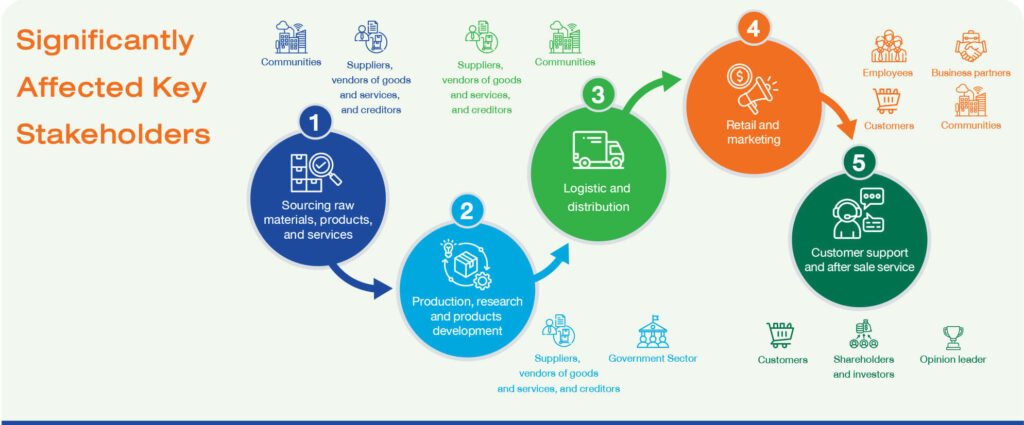
Supporting the SDGs

SDG 3 Ensure healthy lives and promote well-being for all at all ages
3.4 Reduce premature death from non-communicable diseases through prevention, treatment, and support for mental health and well-being
3.6 Reduce deaths and injuries due to road accidents

SDG 5 Achieve gender equality and empower all women and girls
5.1 End discrimination against women and girls everywhere

SDG 8 Promote sustained, inclusive and sustainable economic growth, full and productive employment and decent work for all
8.5 Achieve full and productive employment and decent work for all women and men, including for young people and persons with disabilities, and equal pay for work of equal value
8.8 Protect labour rights and promote safe and secure working environments for all workers, including migrant workers, in particular women migrants, and those in precarious employment

SDG 10 Reduce inequality within and among countries
10.3 Ensure equal opportunity and reduce inequalities of outcome, including by eliminating discriminatory laws, policies and practices and promoting appropriate legislation, policies and action in this regard

SDG 16 Promote peaceful and inclusive societies for sustainable development, provide access to justice for all and build effective, accountable and inclusive institutions at all levels
16.3 Promote the rule of law at the national and international levels, and ensure equal access to justice for all
Performance Against Goal
Results of the “Double Materiality Matrix”
Sustainability Dimensions
Impact level for application in business operations
Progress against Short-term and Long-Term Goals
The Company has continuously conducted Human Rights Impact Assessment following United Nations Guidelines, of its operations and suppliers with high sustainability risks
Performance Summary 2024
Human Rights Risk Assessment: HRRA
The Company’s operation area and business activities
of FTE are assessed for human rights risks and impacts
of FTE have significant human rights risks
of FTE identified as at risk have mitigation measures in place, and corrective actions are taken Additionally, all of 8 CPALL’s Business Units have mitigation plan implemented
The company’s Tier-1 suppliers

completed risks assessments

identified to be at risk

identified to be at risk and has impact mitigation measures
Salient issues
The safety and health of employees in 7-Eleven stores and 24shopping

Work-related accidents, such as accidents from delivery of goods, slipping or falling from stairs, items falling from a height, accidents from a forklift crash, and knife-related accident

Issues with inappropriate Personal Protective Equipment (PPE), such as safety shoes, workwear, temperature control room workwear, etc
Training

of employees have been trained

of store partners (business partners) has been trained

of the Company’s Tier-1 Suppliers has been trained
Grievances on Human Rights Violations

Human Rights Violations

Discrimination

Harassment or Sexual Assault

Violations of Indigenous Rights
Mitigation measures and corrective actions
CP ALL Public Company Limited guarantees that appropriate corrective actions will be taken in the event of human rights violations through continuous monitoring, inspection, and reporting. In addition, the Company will consider compensation and remediation in all forms to ensure that affected rights holders receive appropriate remedy and to mitigate the damage to restore the situation to an appropriate or improved condition. This includes official apologies, compensation for damages, rehabilitation, compensation in monetary or non-monetary forms, penalties, and harm prevention measures, such as prohibition orders or guarantees to prevent recurrence
Promoting equal opportunities and diversity for employees
Capability Building of Female Employees
People with Disability

Number
FTEs
Freedom of Association
The Welfare Committee of the Company’s workforce
Risks and Opportunities
Human rights are an important issue of global concern, particularly the issue of labor practices that do not adhere to human rights principles, such as forced labor, working in unsuitable environments, the denial of the right to form labor unions, and restrictions on the freedom of expression. The United Nations Guiding Principles on Business and Human Rights (UNGP) have set standards for operations that consider human rights throughout the value chain to elevate business activities and reduce human rights risks.
Currently, labor remains a crucial force driving business processes such as raw material procurement, production, transportation, and services to respond to the rapidly changing market demands. Labor and workers may be at risk of human rights violations, such as labor discrimination, sexual harassment, child labor, and forced labor. The Company should establish measures and guidelines to prevent the impact on the human rights of all stakeholders through continuous monitoring and risk assessment to ensure that the organization’s operations align with international human rights protection principles and the laws of the country. Additionally, the Company should promote human rights awareness in business operations throughout the value chain. This not only enhances the Company’s image and builds trust in the organization but also generates acceptance and support for the products and services in society.
Management Approach
The Company established and operated in accordance with policies on human rights and labor practices, encompassing all areas of business operations, including suppliers and business partners-which are in accordance with the UN Guiding Principles on Business and Human Rights (UNGP) and International Labor Organization (ILO) This includes the labor laws of each country where the company conducts business, encompassing significant human rights issues. Such as child labor, forced labor, discrimination, harassment, etc.
In this regard, the Company has a process to assess important issues, impacts, and human rights risks on a regular basis every 3 years in all areas of business activities, encompassing workflow analysis (Full time equivalent: FTE), especially for units with risks. The Company also established integrated preventive measures and mitigated the impact of high-risk issues through the human rights process. The details are as follows:

Human Rights Due Diligence: HRDD

Human Rights Risk Assessment

Human Right Impact Assessment: HRIA
The Company aims to raise awareness of and promote compliance with international human rights principles among employees at all levels., business partners, and level 1 key suppliers through various projects. The Company pushes for equality in the cost of living and employment in accordance with the policy and principles of compensation and benefits. This includes assessing the livelihood of employees and Tier-1 suppliers. Other topics revised are salary and benefits for employees and business partners (Store partners) to receive equal and fair compensation. The Company aims to expand the target to cover 100% of employees by 2025.
There are plans to extend the assessment to suppliers Furthermore, the Company assesses risks related to safety, occupational health, and environmental conditions in the workplace, covering all the Company’s operational areas. This also involves implementing various projects to support and promote well-being for employees and their families through different initiatives, support for the education of employees’ children, and employees’ health care. Employees are also provided with the option to choose healthcare benefits for their parents, spouses, or children (IPD), flexible working arrangements, among other benefits.
Comprehensive human rights due diligence process
The Company has an effective human rights due diligence process and conducts regular human rights risk assessments every three years to identify key risks that need to be managed first for rights holders affected by the Company’s business operations. This includes operations across all business areas of the Company, extending to partners, suppliers, contractors, joint ventures, and mergers and acquisitions. The Company takes into consideration of important human rights issues that may affect business operations, including forced labor, human trafficking, child labor, the freedom of association, the right to form unions, equal pay, discrimination, sexual harassment, among others, as well as security, safety, environmental, and customer rights. This is accomplished through consultations and addressing issues from stakeholders at risk of human rights violations, such as employees, local communities, partners, suppliers, contractors, customers, and consumers, including vulnerable groups such as women, children, indigenous people, migrant laborers, workers hired through third parties, people with disabilities, the elderly, and LGBTQI+ individuals, to ensure that the Company’s business operations do not result in human rights violations.

Policy Commitment
1

Embedding
2
Human Right Policy

Assessing Impact
3

Intergrating and Acting
4

Tracking Performance
5

Communicating Performance
6

Stakeholder Engagement
7
Engage with various stakeholders. both internal and external consisting of employees, community. public agencies, civil organizations. The aim is to communicate the Company’s human rights performance

Remediation and Grievance Mechanism
8
Human Rights Risks Assessment
The Company conducts human rights risk assessments (Human Rights Risk Assessment: HRRA) every three years to identify key risks that need to be managed first and the rights holders affected throughout the value chain. This is part of the comprehensive human right due diligence process (Human Rights Due Diligence: HRDD), covering 8 main business units, which accounts for 100% of business operations and 100% of business activities. These activities include 4 categories: Employee Practice, Supplier & Contractor Rights, Customer Rights, and Community Rights.
From the most recent human rights risk assessment in 2024, the Company considered the previous risk issues, current risks, and risks that are likely to arise in the future. These include issues related to the rights of employees, suppliers, and contractors, community rights, and customer or consumer rights. The issues include working conditions, occupational safety and health, discrimination and harassment, illegal labor use, standard of living, and data privacy. The Company identified key human rights issues in the convenience store business group 7-Eleven, CPALL warehouses, CPRAM, and 24Shopping, which include: 1) Employee occupational health and safety, 2) Discrimination and sexual harassment, 3) Supplier occupational health and safety, 4) Community health and safety, 5) Community standard of living, and 6) Customer health and safety (food safety and well-being).
Additionally, the Company conducts human rights risk assessments for all Tier-1 suppliers, covering a total of 2,412 suppliers. The key issues evaluated include safety training for workers, inspection of work equipment and emergency response equipment, and fire evacuation drills. Moreover, the Company encourages suppliers to develop comprehensive prevention and remediation measures for human rights issues across all Tier-1 suppliers. In cases of human rights violations, the Company is prepared to address these issues according to preventive measures and to mitigate the human rights impacts of high-risk issues through integrated follow-up, monitoring, and reporting. This ensures that affected rights holders will receive appropriate compensation and remedy, as well as the mitigation of impacts to restore the situation to an appropriate or improved condition, such as official apologies, compensation for damages, rehabilitation, compensation in monetary or non-monetary forms, penalties, and harm prevention measures, such as prohibition orders or guarantees to prevent recurrence.
| Employee Practices | Community Practices | Customer Practices | Supplier and Contractor Practices |
|---|---|---|---|
|
|
|
|
Human rights impact assessment
From the human rights risk assessment process, the Company evaluates the human rights impacts on those affected by the business operations regarding the risks that need to be managed first through data collection, surveys of rights holders, covering all employees in all areas with Salient Issues and high risks that need to be managed first. The evaluation covers 4 main groups: 1) 7-Eleven store operations, 2) CP ALL Distribution Centers, 3) CPRAM’s production and logistics, and 4) CP Retailink employees. When impacts are identified, the Company will enhance preventive, mitigating, and remedial measures and communicate equal treatment based on human rights principles within the organization through various forms of communication, such as infographics, campaigns, and messages from senior executives through organizational memos, safety training, use of CCTV cameras to monitor employee driving behaviors, and the use of technology to manage Rider data.
Additionally, in 2025, the Company plans to assess the human rights impact on key issues and high risks identified from the 2024 risk assessment, including 7-Eleven store employees, CP ALL distribution center employees, CPRAM production and logistics employees, CP Retailink employees, and 7-Eleven customers.
Integrated human rights prevention and mitigation measures for high-risk issues Under the scope of responsibility of the Company’s Store Partners (business partners)
| Right holder | Salient Issues | Preventive and mitigating measures | Integration of measures |
|---|---|---|---|
| 7-Eleven store employees, CP ALL distribution center employees, CPRAM, and 24Shopping employees |
|
|
|
Creating awareness of human rights
Training course on Human Rights Policy and Practices and Labor Practices, and ESG Quiz
To build understanding and promote the proper implementation of human rights principles, as well as prevent human rights violations both inside and outside the organization, the Company organizes training for the course ‘Human Rights Policy and Practices, and Labor Practices’ via the e-Learning system. The course on sustainability and governance, also known as the ESG Quiz, covers the following topics:
Human Rights and Labour Practices Policy and Guideline
Diversity, Equality and Inclusion Policy
Non-Discrimination and Anti-Harassment Policy
Foreign Workers Recruitment Policy
Guidelines to prevent human rights violations
Organizational culture and respect for human rights
In 2024, 116,179 people completed the e-Learning course on sustainability and governance, also known as the ESG Quiz, and the ‘Human Rights Policy and Labor Practices’ course for new executives (onboarding), with a total of 1,430 people. The Company plans to expand the scope of raising awareness and understanding for employees at all levels, across all locations, including suppliers and store partners (business partners), through online systems, achieving 100% coverage by 2025.
Additionally, employees can access human rights knowledge through the Company’s portal ‘CPALL Connect,’ online seminars, emails, employees’ desktop computers, morning briefing meetings (Morning Talk), and various learning media such as digital media, videos, posters, bulletin boards, representative mascot symbols, as well as promotional activities like the ‘ALL Pride 2024’ diversity campaign.
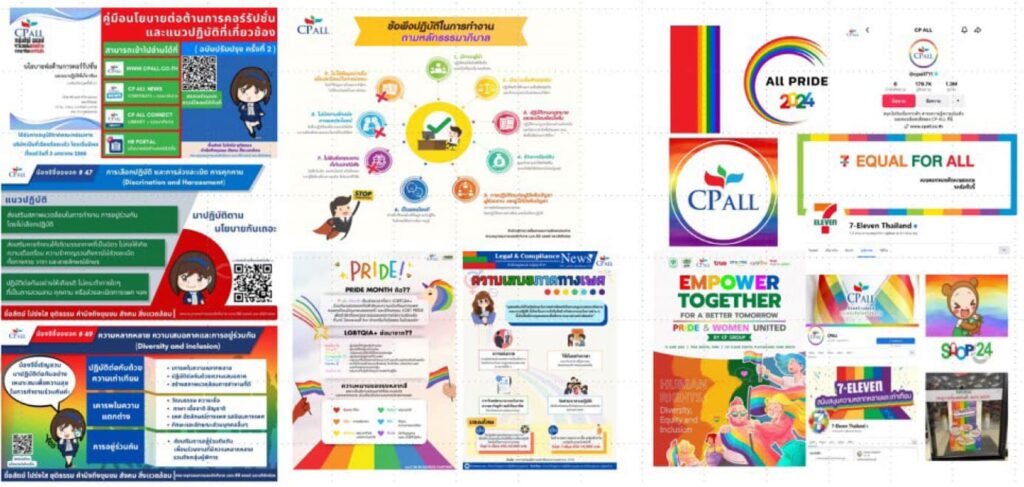
Fair treatment of labor
The Company considers labor rights and fair treatment of employees in accordance with laws and policies under both Thai and international labor protection acts. Additionally, the Company also considers appropriate employment practices, wages, working hours, holidays, and benefits, as well as a safe working environment with good conditions. The Company provides employee benefits including:
| Employee Benefits | Legal rights | Rights that the Company provides to employees |
|---|---|---|
| Paid parental leave for the primary caregiver Employee Benefits | 98 Days | 120 Days |
| Paid parental leave for the non-primary caregiver | 0 Days | 7 Days |
| Leave for the care of an adopted child for employees with diverse sexual orientations | 0 Days | 7 Days |
| Public holidays | Not less than 13 days per year | 14-18 Days |
| Annual leave | Not less than 6 days per year | 6-12 Days |
| Business Leave | 3 Days | 3-7 Days |
| Personal leave for personal matters to promote work-life balance | – | 7 days of paid leave, not including holidays that fall between the leave period |
Besides benefits that comply with legal standards and various policies, the Company also provides a wide range of benefits to employees to promote their well-being while working with the Company. These include emergency loan benefits from financial institutions with special interest rates, housing rent assistance, assistance for employees working at branch offices in remote areas (hardship allowance), and life security benefits such as pension funds, life insurance for illness and accidents, and voluntary group health insurance that covers both employees and their families. The benefits also include emergency loans for employees and their families, as well as disaster relief assistance, among others.
The Company prioritizes the health of employees by providing health services through the CPALL Health Care Center and a fitness center for employees (The Tara Fitness Club), offering training by experts in various fields, and promoting employees’ overall well-being. The Company also provides health check-ups by pharmacists using modern equipment through the ‘Exercise My Way’ program and organizes the ‘Good Health & Happy Family CP ALL 2024’ activities.
Remark: The key areas for providing support cover employees working in office areas, distribution centers, and 7-Eleven store operations.
Freedom of Association
The Company respects the freedom of expression and concerns of employees at all levels through various feedback channels such as emails, information reporting centers, the Company’s online media, the Voice of Employee system, and through the Welfare Committee in the workplace (Welfare Committee) established under the Labor Protection Act, B.E. 1998. Currently, there are 1,472 employees representatives on the Welfare Committee, accounting for 100% of all employees. Quarterly meetings are held for discussions. In 2024, the following proposed suggestions were approved for further action:
Promoting equal opportunities and diversity in the workforce
The Company values diversity and differences among employees, based on non-discrimination of race, religion, gender, skin color, language, age, and including persons with disabilities. The Company treats all employees equally, promotes equal opportunities for employment, development, and career advancement. The Company supports job creation by employing people with disabilities in suitable positions. Additionally, the Company organizes continuous campaigns to provide opportunities for employees to participate, exchange opinions, and promote equality and diversity. It encourages all personnel to fully demonstrate their potential, as well as promoting efforts to reduce disparities both inside and outside the organization through diverse feedback from societal groups. This will help reduce discrimination and harassment in all forms during business operations.
In 2024, the Company organized the ALL PRIDE 2024 event: Diversity, Equity, Sustainability, under the theme of Diversity, Equity, and Inclusion. The event included a parade, seminars sharing ideas and life experiences from influencers, a fashion and idea presentation contest reflecting the theme ‘Diversity, Equity, and Inclusion,’ and booths selling products from suppliers. Additionally, the Company collaborated with Teayii, or Teayi- Prapassorn Kanjanasoot, to design the ‘Pride Collection’ products, which were sold at all 7-Eleven stores nationwide during Pride Month, such as canvas bags from 7-Eleven x Teayii, water bottles, umbrellas, socks, etc. The proceeds, after expenses, were donated to the Thai Red Cross, totaling 3.5 million Baht.
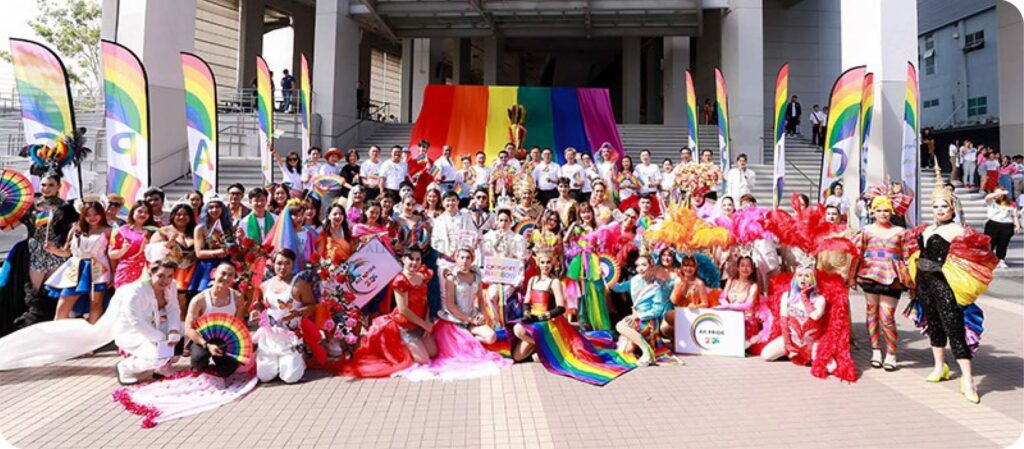
Additionally, the Company, under the operation of CPRAM, provides opportunities for foreign employees to showcase their talents and participate in the Company’s key activities with equal rights to Thai employees. These activities include foreign employee cooking contests with dishes such as Lok Lak and Waat Sarr Hainn, and the Songkran beauty queen contest, among others.
Living Wage
The Company values employees as a key pillar that drives business success. To ensure employees are well taken care of, the Company provides benefits, a good working environment, and a safe workplace, as well as fair compensation. This is achieved through policies and guidelines for managing compensation and benefits, as well as considering fair and equitable salaries and benefits for employees and business partners (store partners) in each area. The Company strictly adheres to legal requirements and sets competitive compensation compared to the industry. Additionally, the Company provides support and compensation that exceed the minimum wage set by law, including additional payments for expenses such as overtime, travel, special allowances, housing, meals, and attendance bonuses, ensuring employees receive compensation suitable for a decent living.
The Company has established a process for evaluating compensation and benefits in collaboration with leading global consulting firms, including Korn Ferry Hay Group and the Personnel Management Association of Thailand (PMAT), a leading human resources management professional association in Thailand. Additionally, the Company analyzes the impact of changes in the cost of living and employment factors in various aspects of the business. The goal is to ensure 100% coverage of all employees by 2025. There are also plans to expand the evaluation to include suppliers and contractors in the future to ensure that the Company offers fair and competitive compensation and benefits.
